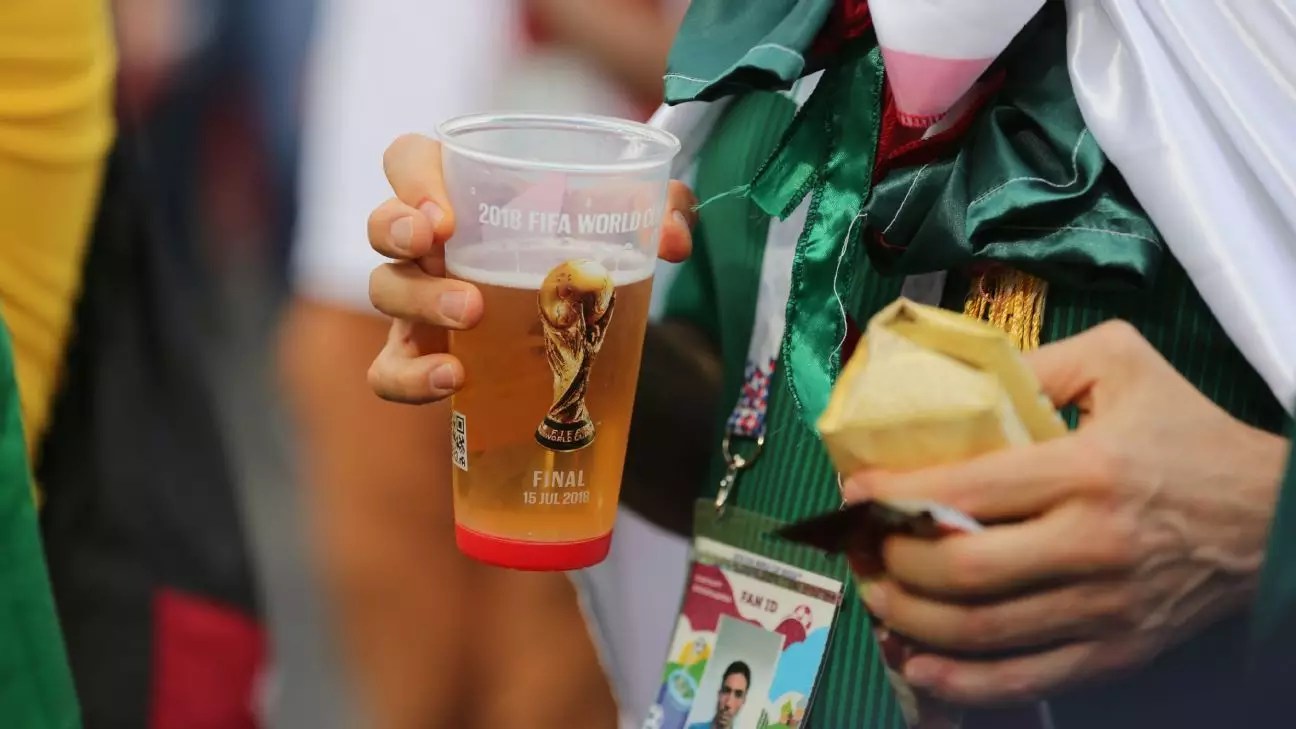As the 2034 World Cup approaches, Saudi Arabia is preparing to host one of the world’s largest sporting events; however, this comes with significant restrictions that may surprise many international fans. The Saudi ambassador to the UK, Prince Khalid bin Bandar Al Saud, recently confirmed that there will be a total ban on alcohol throughout the tournament. This decision highlights the deep cultural values and norms that define Saudi society, a country where Islamic traditions dictate social behavior and public conduct. The ambassador emphasizes that attendees should honor and respect the Saudi culture, reinforcing the idea that experiencing enjoyment is possible without alcohol.
The prohibition of alcohol not only represents a cultural stance but also raises questions about the overall experience for fans. Unlike Qatar’s World Cup, where some accommodations were made regarding alcohol sales in designated areas, it appears that Saudi authorities are firmly committed to a dry event. The royal representative’s comments suggest a significant deviation from what many international fans might anticipate when attending such a high-profile event. While laughter accompanied his remarks, “Really? You can’t live without a drink?” there is an underlying seriousness in the assertion that Saudi Arabia will not compromise its customs, no matter the circumstances.
Comparisons to Previous World Cups
The situation recalls the lead-up to the 2022 World Cup in Qatar, where the last-minute decision to allow alcohol sales exemplified how hosts can navigate local customs while accommodating global expectations. Qatar’s experience serves as a lesson for Saudi Arabia; the kingdom seemingly prefers a more rigid approach, which could affect fan behavior and attendance. With FIFA’s decision-making process now favoring Saudi Arabia, it is crucial to consider whether this lack of flexibility could deter fans from traveling to what will undoubtedly be a world-renowned event.
Aside from the cultural implications, the choice of Saudi Arabia raises numerous human rights issues that need to be addressed. Organizations like Amnesty International have already expressed serious concerns over worker exploitation and the treatment of marginalized communities, including LGBTQIA+ individuals. The reality that same-sex relationships can lead to severe punishment in Saudi Arabia casts a shadow over the tournament’s accessibility for all fans, particularly those from countries with far more progressive stances on LGBTQIA+ rights. While the ambassador offered reassurances by claiming, “We will welcome everyone,” the reality of living in a society that is still grappling with human rights and social equality poses a significant barrier for many.
As the 2034 World Cup date draws nearer, the Saudi approach to hosting the event presents a unique blend of cultural pride and international concern. While the government’s determination to preserve its customs is understandable, it sparks debate over the assumptions made about what is necessary for a festive and unifying global event. The challenge will be to reconcile the festivities of a World Cup with the realities of living in a nation that holds firm to its traditions. For fans, this may mean balancing their expectations against a backdrop of cultural norms that could prove both enriching and restricting. Thus, the question remains: can a world event truly cater to global diversity while being anchored in the specificities of Saudi culture?


Leave a Reply